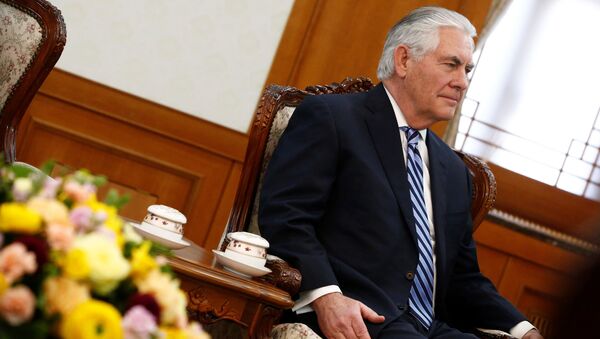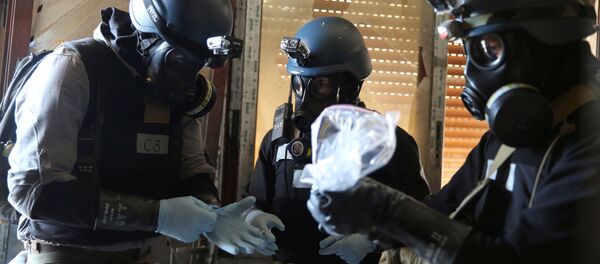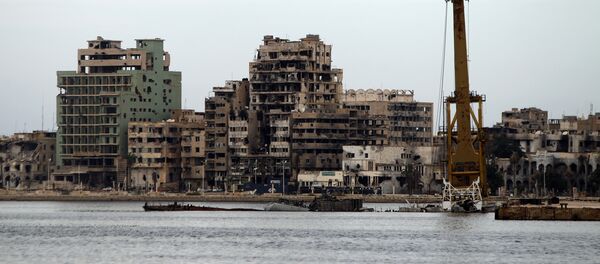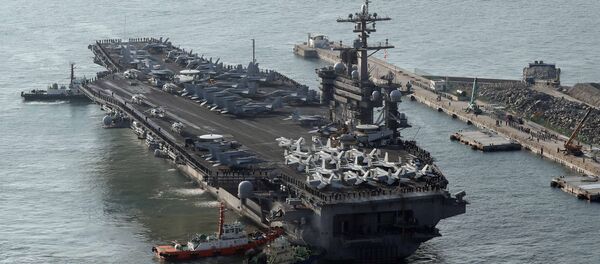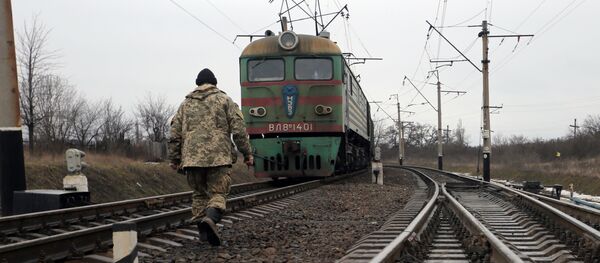MOSCOW (Sputnik) — Moscow hopes for fruitful negotiations with the US state secretary on his visit to Moscow, the Russian Foreign Ministry said in a statement Tuesday.
"In connection with the beginning of today's working visit to Russia by US Secretary of State R. Tillerson, we would like to note that we are counting on productive negotiations," the ministry said.
Tillerson is visiting Moscow on Tuesday and Wednesday for talks with Russian Foreign Minister Sergei Lavrov.
"This is important not only for the prospects of further bilateral interaction, but also for the general atmosphere in the international arena," the ministry underscored.
Moscow hopes that Washington will agree to an unbiased investigation of the recent chemical weapons incident in Syria's Khan Shaykhun.
"We firmly expect that Washington will agree to an objective investigation with the OPCW involvement of the incident with chemical poisoning on April 4 of the residents of Syria's Khan Shaykhun. The West groundlessly accused Syria's authorities of it, although militants of Jabhat al-Nusra [banned in Russia], who… produced landmines stuffed with poisonous substances, operate in that area," the statement said.
On April 4, a chemical weapons incident in Syria's Idlib province claimed the lives of some 80 people and inflicted harm on an additional 200 civilians. The Syrian National Coalition of Revolutionary and Opposition Forces, as well as a number of Western states, accused the Syrian government troops of carrying out the attack, while Damascus refuted these allegations, with a Syrian army source telling Sputnik that the army did not possess chemical weapons.
Russian President Vladimir Putin said April 6 that groundless accusations in the chemical weapons incident in Syria's Idlib were unacceptable before the investigation into the matter had been carried out.
However, the incident was used as pretext for a US missile strike against the Ash Sha'irat airbase carried out late on April 6. US President Donald Trump characterized the strike as a response to the alleged use of chemical weapons by the Syrian government troops while Russian Foreign Minister Sergei Lavrov said it was a violation of the international law. Iranian Supreme Leader Ayatollah Ali Khamenei described the US missile strike against the Syrian airfield as a strategic mistake.
Moscow expects Tillerson to detail Washington's plans in Libya.
"We expect to hear what the US plans to do in Libya, which has in fact become shattered as a result of NATO's military intervention, like Iraq," the ministry said.
Libya has been in a state of turmoil since 2011, when a civil war broke out in the country and long-standing leader Muammar Gaddafi was overthrown, and the country was contested by two rival governments: the internationally-recognized Council of Deputies based in Tobruk and the Tripoli-based General National Congress.
Russia awaits from the United States coherent clarifications on the whole range of issues of strategic stability and security in the Euro-Atlantic region.
"We await coherent clarifications of the US course on the whole range of issues of ensuring strategic stability and security in the Euro-Atlantic," the statement read.
Russia is concerned that the United States hints at the possibility of a military scenario regarding North Korea.
"We are very much concerned over what Washington has conceived about the DPRK, hinting at the possibility of a unilateral military scenario. It is important to understand how this correlates with collective obligations on the issue of the denuclearization of the Korean Peninsula in the UN Security Council resolutions," the ministry said.
On Saturday, US officials announced that aircraft carrier strike group was sent to the Korean peninsula amid rising tensions. On Sunday, US National Security Adviser Lt. Gen. Herbert McMaster said that US President Donald Trump had ordered preparation of all possible options in order to protect the United States and its partners from North Korean threat.
Since the beginning of 2016, North Korea has carried out a number of missile launches and nuclear tests, prompting worldwide criticism. As a result, the UN Security Council tightened the sanctions regime for North Korea in an attempt to force Pyongyang to stop ballistic missile launches and nuclear tests, including imposing a measure intended to affect the country’s trade, export of natural resources, arms trade and the banking sector.
Moscow is preparing for constructive cooperation instead of confrontation, but stands ready for any developments.
"We are ready for any eventuality, however proceed from the favorability of such work that will reduce international tension rather than raising it," the statement said.
It added that "we are preparing not for confrontation, but for constructive cooperation. We hope the US side wants the same."
Moscow hopes the United States does not refuse to take part in international consultations on Afghanistan this Friday.
"We hope that the US will not refuse to participate in international consultations on Afghanistan, whose next round will be held in Moscow on April 14," the ministry said.
State Department spokesman Mark Toner told Sputnik last month that the US "does not plan to participate" in the international talks involving 12 countries. Russian Foreign Ministry spokeswoman Maria Zakharova said Moscow regretted Washington's refusal to participate.
The lack of control and instability turned the country into home to the largest opium poppy production and distribution network in the world.
The Russian Foreign Ministry expressed hope that the United States would urge the Ukrainian government to adhere to the Minsk agreements.
"We especially hope that the United States will be able to neutralize the revanchist moods of the Ukrainian ‘party of war’ by using its influence on Kiev. Washington could also persuade the Kiev authorities to adhere strictly to their obligations under the Minsk agreements," the statement read.
In February 2015, Kiev forces and Donbass independence supporters signed a peace agreement in the Belarusian capital of Minsk. The deal stipulates a full ceasefire, weapons withdrawal from the line of contact in Donbass, as well as constitutional reforms that would give a special status to the Donetsk and Lugansk People's Republics. Despite the agreement brokered by the Normandy Four states (Russia, France, Germany and Ukraine), the ceasefire regime is regularly violated, with both sides accusing each other of multiple breaches, undermining the terms of the accord.
